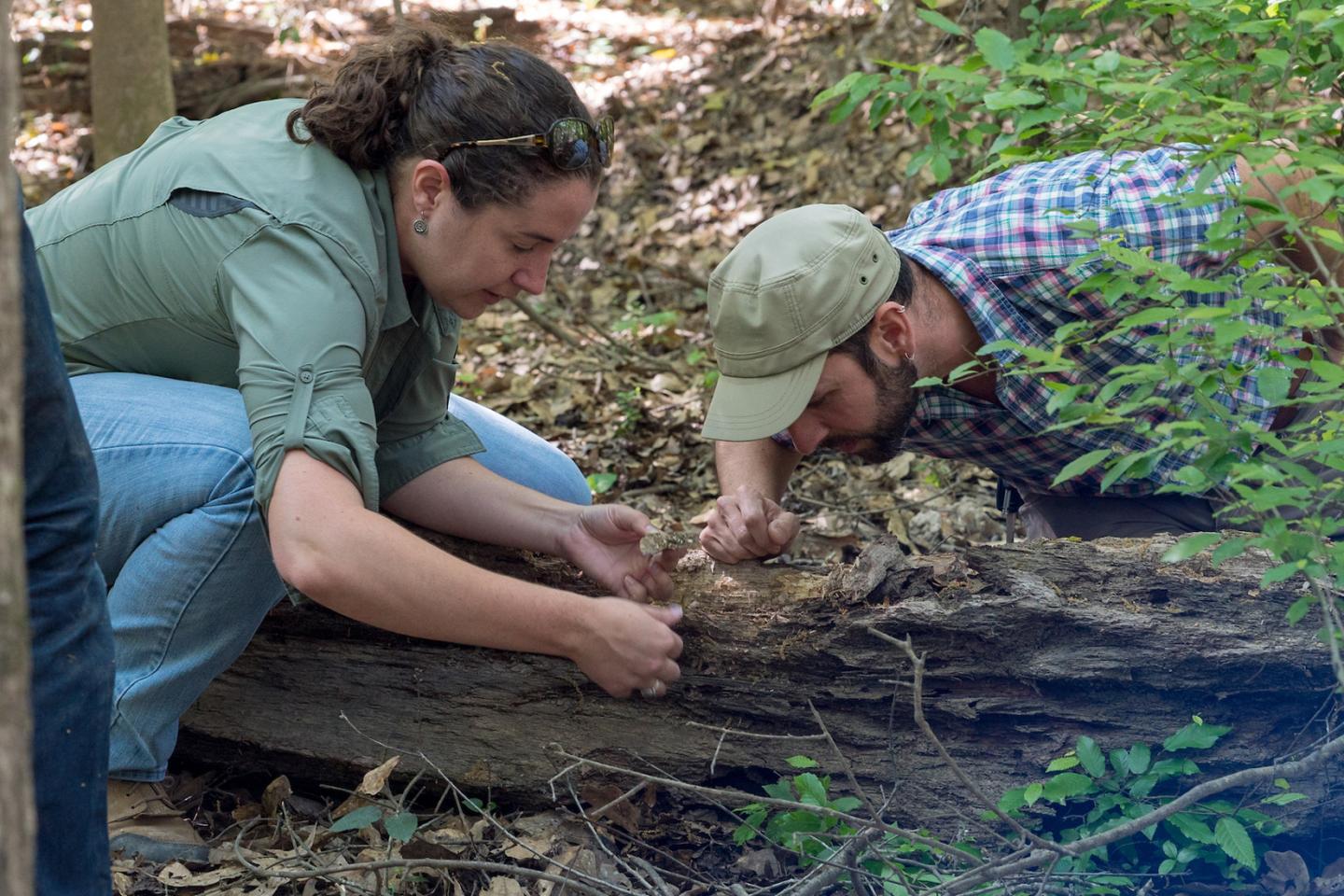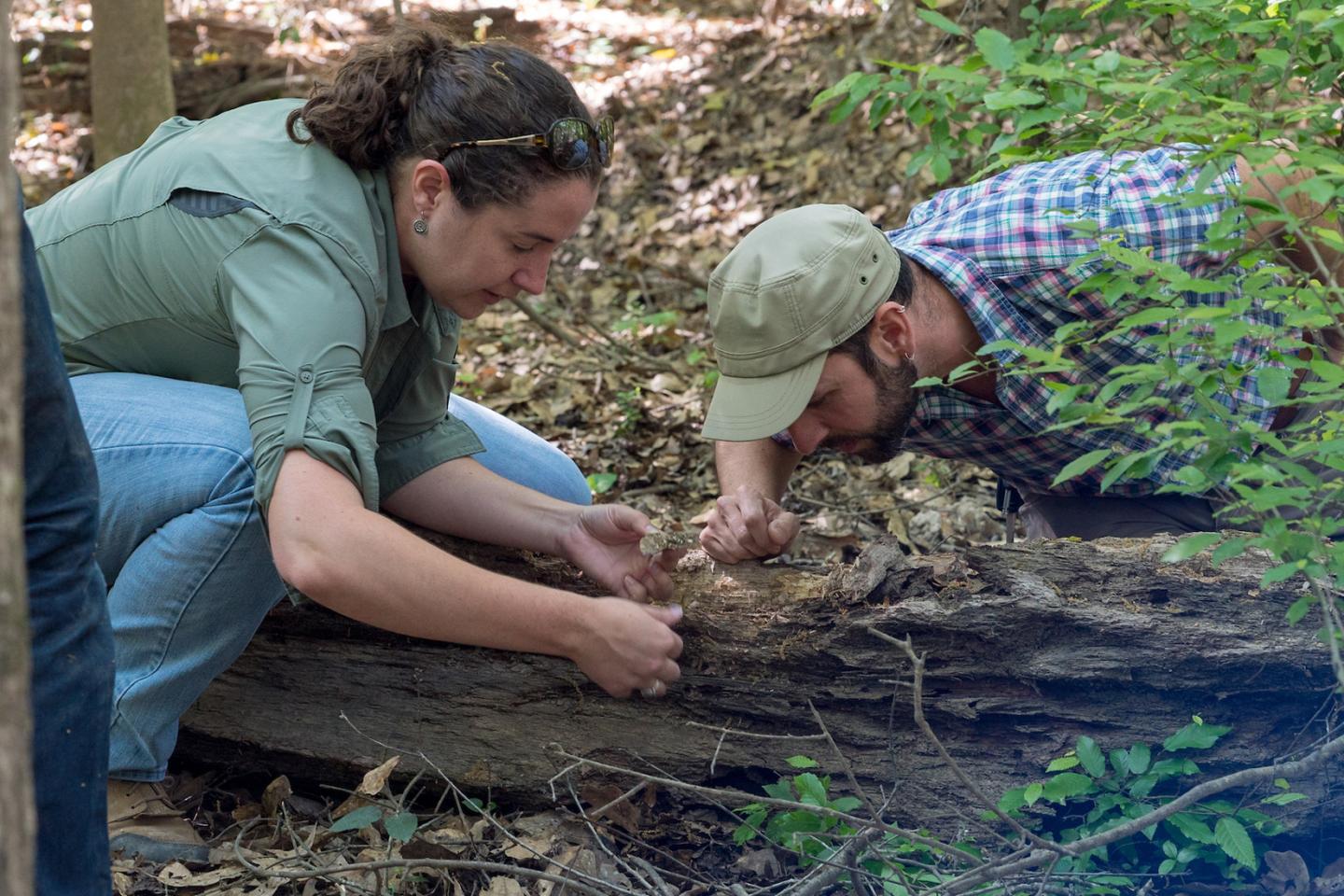
Credit: Brandon Martin/Rice University
HOUSTON — (March 26, 2018) — Rice University ecologists are checking to see if Hurricane Harvey's unprecedented floods gave a competitive boost to fire ants and crazy ants, two of southeast Texas' least favorite uninvited guests.
Extreme weather events like Harvey are expected to become more likely as Earth's climate changes due to greenhouse gas emissions, and scientists don't understand how extreme weather will impact invasive pests, pollinators and other species that affect human well-being.
With support from the National Science Foundation's Rapid Response Research (RAPID) program, Rice ecologists Tom Miller, Sarah Bengston and Scott Solomon, along with their students, are evaluating whether Harvey increased opportunities for invasion by exotic ants.
"Hurricane Harvey was, among other things, a grand ecological experiment," said Miller, the principal investigator on the grant and the Godwin Assistant Professor of Ecology and Evolutionary Biology in Rice's Department of BioSciences. "It offers a unique opportunity to explore whether a single extreme-weather event can re-shuffle an entire community of organisms."
"We're conducting monthly pitfall sampling at 19 established sites in the Big Thicket, a national preserve near Beaumont," said Bengston, an ant expert, co-principal investigator on grant and Huxley Research Instructor of BioSciences. "Rice's team has been working at these same sites for three years, and we know fire ants and tawny crazy ants, which are each invasive species, had begun to penetrate the intact native ecosystems in the park before the hurricane. We now want to know whether Harvey accelerated this invasion process."
The RAPID funding will allow the team to document changes in ant communities and test whether changes in response to the hurricane are transient or represent new stable states.
Miller said the researchers also plan to assemble a functional trait database for the ant communities to test whether the Harvey floodwaters favored some types of ant species — such as those with larger bodies or more-protected nests — over others.
"There are dozens of native ant species in the preserve that provide valuable ecosystem services like decomposition and pest control," said Solomon, an ant expert, co-principal investigator on the grant and associate teaching professor of biosciences. "Fire ants and crazy ants, which are each native to South America, are noxious invasive pests that tend to overwhelm and drive out almost all native ant species. If the floods cleaned the slate by drowning all the native ant colonies in the area, our hypothesis is that this may provide a competitive advantage to invaders."
Solomon said research teams began making monthly visits to the Big Thicket test sites just a few weeks after Harvey and will continue collecting samples for one year.
"It was a cold winter, and there wasn't much ant activity," he said. "As temperatures warm up, we'll be interested to see which ants come back the soonest and in what numbers."
NSF's RAPID grants support research of natural disasters and unanticipated events for which time is a factor in gathering data.
###
VIDEO is available at:
High-resolution IMAGES are available for download at:
https://commons.wikimedia.org/wiki/File:Solenopsis_invicta_-_fire_ant_worker.jpg
CAPTION: Fire ant (Photo by Alex Wild/University of Texas)
http://news.rice.edu/files/2018/03/0326_FIREANT-grp-lg-1zj9981.jpg
CAPTION: Rice University ecologists Michael Saucedo '17, Tom Miller and Sarah Bengston at Big Thicket National Preserve near Beaumont, Texas. The researchers are studying whether Hurricane Harvey's unprecedented floods gave a competitive boost to invasive fire ants and crazy ants. (Photo by Brandon Martin/Rice University)
http://news.rice.edu/files/2018/03/0326_FIREANT-sbtm1-lg-1ybke2n.jpg
CAPTION: Rice University ecologists Sarah Bengston and Tom Miller examine ants at Big Thicket National Preserve near Beaumont, Texas. The researchers are studying whether Hurricane Harvey's unprecedented floods gave a competitive boost to invasive fire ants and crazy ants. (Photo by Brandon Martin/Rice University)
NSF Award No. 1811225
RAPID: Ant community responses to a 1,000-year flooding event
https://www.nsf.gov/awardsearch/showAward?AWD_ID=1811225
This release can be found online at news.rice.edu.
Follow Rice News and Media Relations via Twitter @RiceUNews
Located on a 300-acre forested campus in Houston, Rice University is consistently ranked among the nation's top 20 universities by U.S. News & World Report. Rice has highly respected schools of Architecture, Business, Continuing Studies, Engineering, Humanities, Music, Natural Sciences and Social Sciences and is home to the Baker Institute for Public Policy. With 3,879 undergraduates and 2,861 graduate students, Rice's undergraduate student-to-faculty ratio is 6-to-1. Its residential college system builds close-knit communities and lifelong friendships, just one reason why Rice is ranked No. 1 for quality of life and for lots of race/class interaction and No. 2 for happiest students by the Princeton Review. Rice is also rated as a best value among private universities by Kiplinger's Personal Finance. To read "What they're saying about Rice," go to http://tinyurl.com/RiceUniversityoverview.
Media Contact
Jade Boyd
[email protected]
713-348-6778
@RiceUNews
http://news.rice.edu





